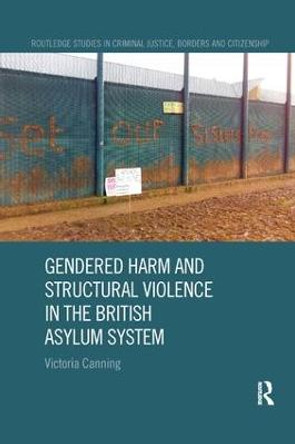Description
This book outlines key developments in understanding social harm by setting out its historical foundations and the discussions which have proliferated since. It examines various attempts to conceptualise social harm and highlights key sites of contestation in its relationship to criminology to argue that these act as the basis for an activist zemiology, one directed towards social change for social justice. The past two decades have seen a proliferation of debate related to social harm in and around criminology. From climate catastrophe and a focus on environmental harms, unprecedented deaths generating focus on border harms and the coronavirus pandemic revealing the horror of mass and arguably avoidable deaths across the globe, critical studies in social harm appear ever more pressing.
Drawing on a range of international case studies of cultural, emotional, physical and economic harms, From Social Harm to Zemiology locates the study of social harm in an accessible fashion. In doing so it sets out how a zemiological lens can moves us beyond many of the problematic legacies of criminology. This book rejects criminologies which have disproportionately served to regulate intersectional groups, and which have arguably inflicted as much or more harm by bolstering the very ideologies of control in offering minor reforms that inadvertently expand and strengthen states and corporations. It does this by sketching out the contours, objects, methods and ontologies of a disciplinary framework which rejects commonplace assumptions of 'value freedom'. From Social Harm to Zemiology advocates social change in accordance with groups who are most disenfranchised, and thus often most socially harmed.
An accessible and compelling read, this book is essential reading for all zemiologists, critical criminologists, and those engaged with criminological and social theory.
About the Author
Victoria Canning is senior lecturer in Criminology at the University of Bristol. She is currently co-coordinator of the European Group for the Study of Deviance and Social Control, associate director in Border Criminologies at Oxford University and a trustee of Statewatch. She researches violence, harm and torture, and has worked for more than a decade on migrant rights and women's rights.
Steve Tombs is Professor of Criminology at The Open University. He has a long-standing interest in the incidence, nature and regulation of corporate and state crime and harm. He has long worked with the Hazards movement in the UK, and is a trustee and board member of Inquest.
Reviews
The book introduces Zemiology as a discipline that lies beyond the 'toxic language' of conventional criminology and makes the study of social harm a concern of all scholar-activists. Zemiolgy alerts scholar-activists to the fact that lots of harms around the world are legally imposed. The authors conclude that the pursuit of corporate profits at the expense of human needs is the main driver of social harms. They call for the abolition of capitalism as part of efforts towards harm-reduction.
Biko Agozino, Professor of Sociology and Africana Studies, Virginia Tech.
This book is timely and provides an easily accessible, theoretical and empirical introduction to zemiology, the discipline that seeks to unearth harmful structures, policies, decisions and practice to generate changes to confront them. After a pedagogical introduction covering the arguments in favour of zemiology as a discipline of its own, the book unpacks theoretical and empirical demonstrations that clearly underline the field's justification. As the authors state; Zemiology requires a rethink about the lens through which we view the world in which we live. This is an important book for students and others who want to look beyond criminology to understand, analyse and act against harms.
Ragnhild Sollund, Professor at the University of Oslo.
The book introduces Zemiology as a discipline that lies beyond the 'toxic language' of conventional criminology and makes the study of social harm a concern of all scholar-activists. Zemiolgy alerts scholar-activists to the fact that lots of harms around the world are legally imposed. The authors conclude that the pursuit of corporate profits at the expense of human needs is the main driver of social harms. They call for the abolition of capitalism as part of efforts towards harm-reduction.
Biko Agozino, Professor of Sociology and Africana Studies, Virginia Tech
This book is timely and provides an easily accessible, theoretical and empirical introduction to zemiology, the discipline that seeks to unearth harmful structures, policies, decisions and practice to generate changes to confront them. After a pedagogical introduction covering the arguments in favour of zemiology as a discipline of its own, the book unpacks theoretical and empirical demonstrations that clearly underline the field's justification. As the authors state; zemiology requires a rethink about the lens through which we view the world in which we live. This is an important book for students and others who want to look beyond criminology to understand, analyse and act against harms.
Ragnhild Sollund, Professor at the University of Oslo
Book Information
ISBN 9781138366091
Author Victoria Canning
Format Paperback
Page Count 156
Imprint Routledge
Publisher Taylor & Francis Ltd
Weight(grams) 1700g





